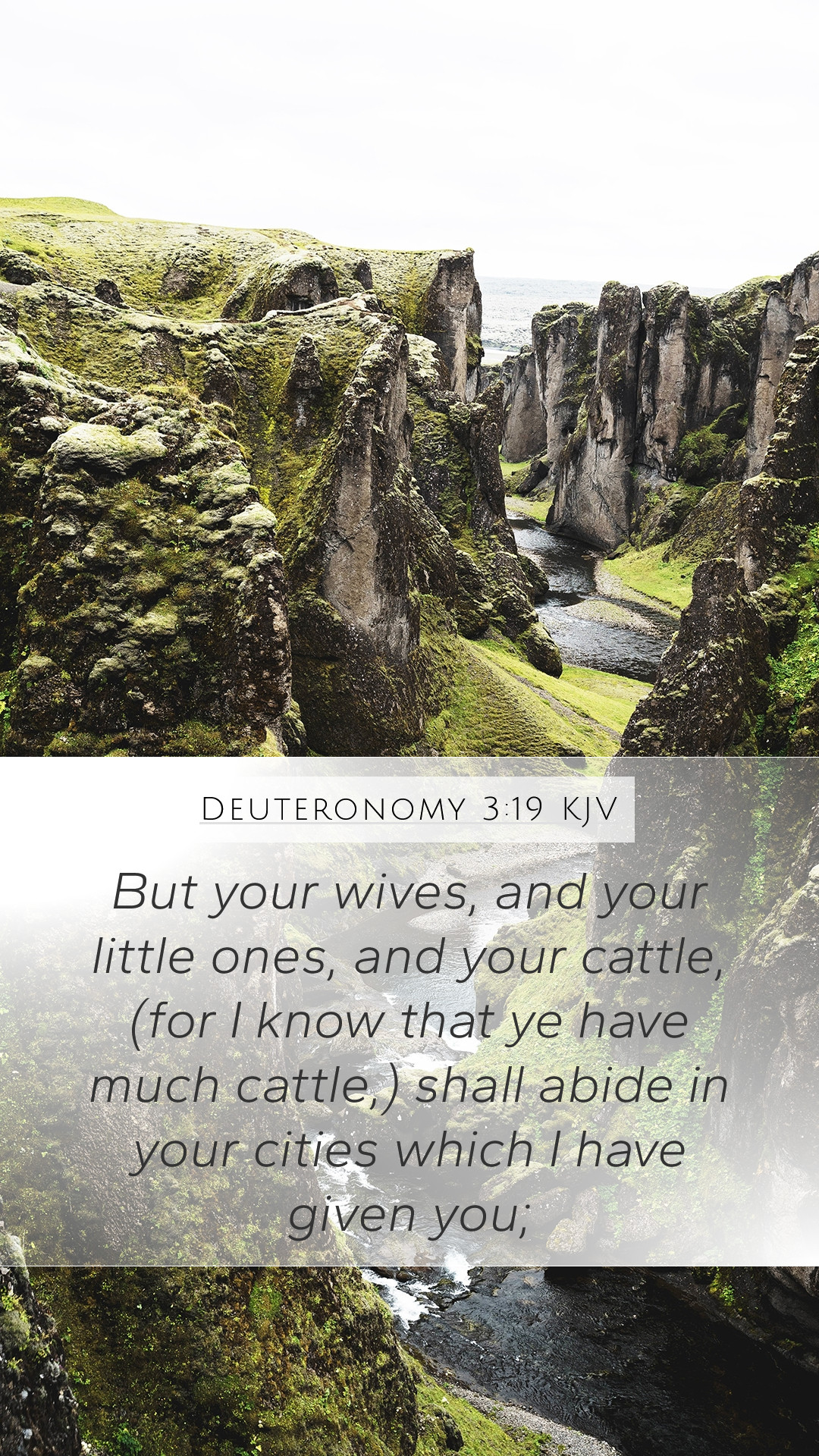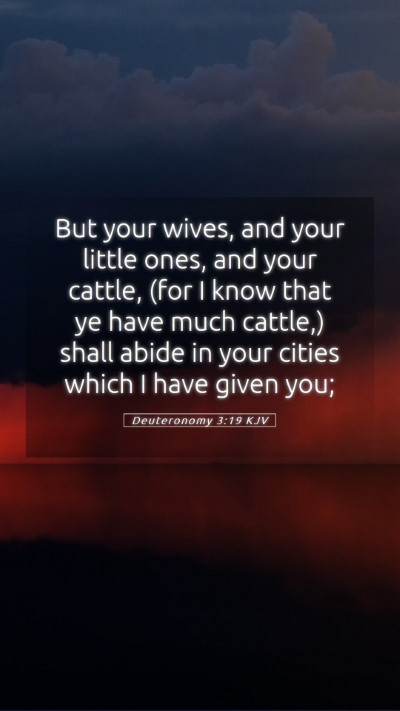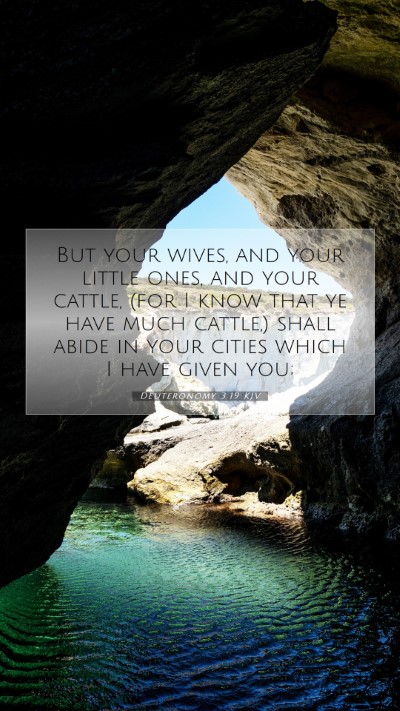Understanding Deuteronomy 3:19: A Comprehensive Analysis
Bible Verse: Deuteronomy 3:19
In this verse, we encounter important themes regarding the Israelites' journey and the responsibilities they bear as they approach the Promised Land.
Verse Text
"But your wives, your little ones, and your cattle, (for I know that you have much cattle,) shall abide in your cities which I have given you."
Summary of Meaning
The essence of Deuteronomy 3:19 revolves around the division of responsibilities among the Israelites during the conquest of Canaan. The verse emphasizes the protection of the vulnerable and the prioritization of familial duties, as highlighted by various Biblical commentators.
Insights from Public Domain Commentaries
-
Matthew Henry:
Matthew Henry emphasizes the compassion shown toward families, recognizing the need to provide safety for women and children while the men venture into battle. He interprets this as a principle of protecting the weak and fulfilling familial obligations. This arrangement reflects God's care and the social order He desires among His people.
-
Albert Barnes:
Barnes elaborates on the concept of responsibility, pointing out that the men of Israel were to take the lead in battle while ensuring that their families were safe. He notes that the mention of cattle underscores the blessings and possessions they have received and highlights the importance of stewardship over their resources while they engage in conflict.
-
Adam Clarke:
Clarke provides an in-depth understanding of the context surrounding this directive. He illuminates the cultural practices of ancient Israel, where the welfare of the family unit was paramount. Clarke also underscores that the cities of refuge would serve as protective havens, reinforcing the mercy of God in providing safe spaces for those left behind.
Contextual and Historical Consideration
This verse must be understood within the broader narrative of the Israelites' journey through the wilderness and their impending conquest of Canaan. It reflects the transitional phase where the Israelites were preparing for significant changes in their social and religious life.
As they are poised to take possession of the land promised to their ancestors, the instructions given serve a dual purpose: they ensure the continuation of their families and promote collective responsibility within the community.
Application and Reflection
The directive in Deuteronomy 3:19 encourages modern readers to consider family roles and responsibilities, especially in times of struggle or conflict. It hints at the importance of protecting loved ones while actively engaging in one’s duties. This calls for reflection on how we balance our personal responsibilities with the needs of our family and community.
Cross References
- Exodus 20:12: “Honor your father and your mother” - highlights family importance.
- Joshua 1:12-15: Details the division of the land, echoing themes from this verse.
- 1 Thessalonians 5:14: Instructs believers to help the weak, paralleling the care for families.
Concluding Thoughts
Overall, Deuteronomy 3:19 provides significant insights into the nature of leadership, responsibility, and compassion within the community of faith. As we delve into these Bible verse meanings and explore Bible verse interpretations, we gain a deeper understanding of Scripture that can inform our bible study insights and enrich our spiritual journeys.


